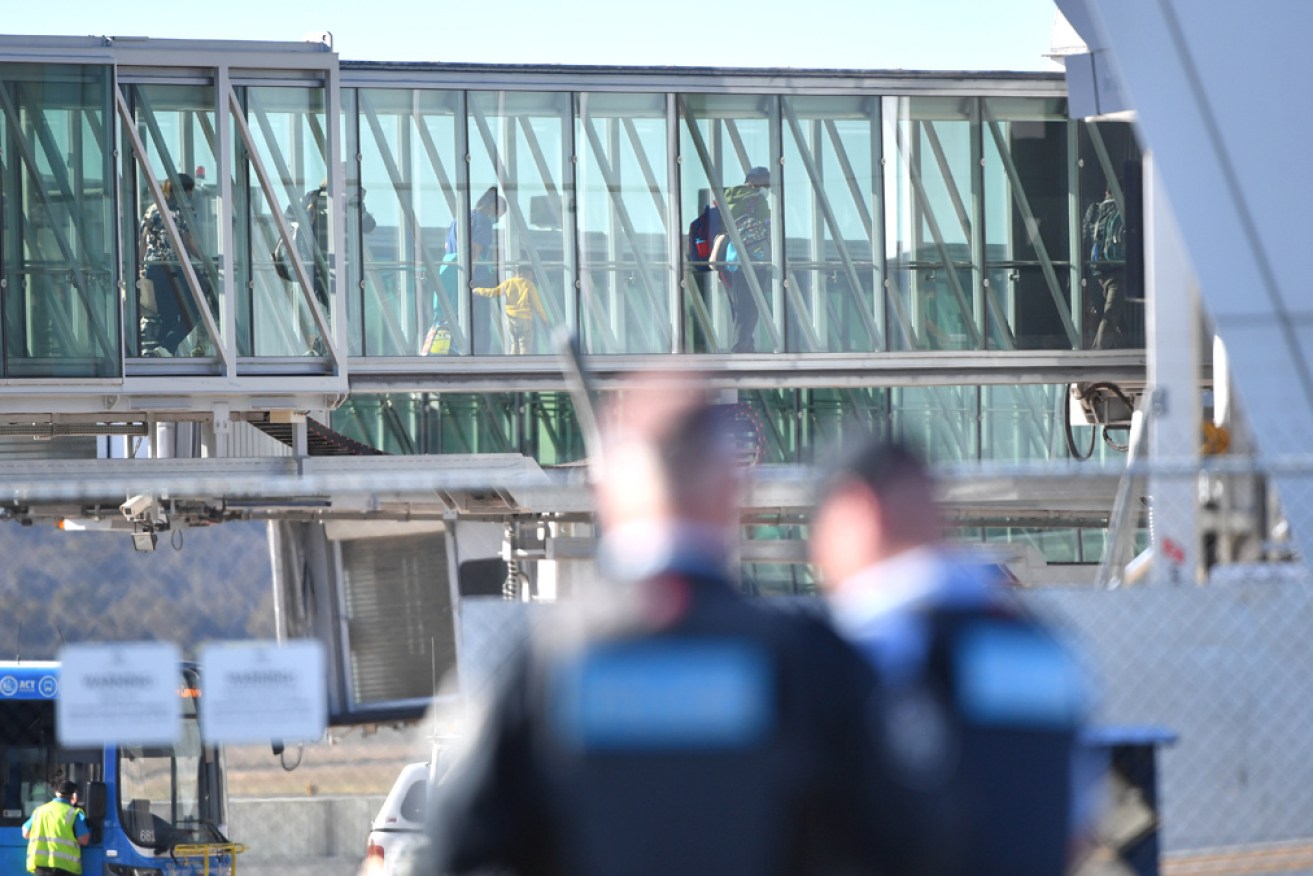India flights slashed amid worrying surge in coronavirus cases


The number of flights from India will be cut as the nation deals with a surging coronavirus crisis.
Direct flights to Australia from India will be slashed by 30 per cent, as the number of infections in travellers returning from the subcontinent surges.
Thursday’s national cabinet meeting also agreed to designate high-risk countries – of which India will be one – from where returning travellers will require a negative coronavirus test within 72 hours of boarding their flight home.
Indian has become the new epicentre of the pandemic, with surging COVID-19 infections – including more than 300,000 diagnosed in the past 24 hours.
It has had 15.93 million cases since the pandemic began, including more than 184,000 deaths.
Health experts believe a new “double mutant” strain – dubbed B.1.617 – is likely to be behind the most recent surge in cases on the subcontinent.
“As time goes on, and the pandemic continues to rage, there are countries that are frankly of greater risk than others,” Prime Minister Scott Morrison said.
“We’ve seen, in particular, most recently an increase in the rate of cases in our quarantine system at a state and territory level for arrivals from India.”
Before Thursday’s meeting, Western Australian Premier Mark McGowan had flagged a push for a temporary cut to Australian citizens and permanent residents returning from India as hotel quarantine struggles to deal with increasing numbers of infected returning travellers.
“Just in WA, in the past month alone 40 per cent of cases in quarantine had recently been in India. In the previous month it was just 11 per cent,” he said earlier.
“With more and more arrivals coming from India, we need to seriously look at temporarily restricting travel of people who have been in or through India.”
Exemptions for people leaving to Australia to visit high-risk countries will also be cut.
“We’ll be instructing the Australian Border Force to ensure only in very urgent circumstances would an exemption be permitted for someone to travel to a high-risk country,” Mr Morrison said.
In another deal struck at Thursday’s meeting, all Australians aged over 50 will be able to get a coronavirus vaccine within weeks.
Mr Morrison said vaccine eligibility would be widened to over-50s who are prepared to have the AstraZeneca shot.
First doses will be available at respiratory clinics and through state and territory hubs from May 3, and at wider GP clinics from May 17.
“That will give them ample time to gear up for that and give them more time for those GPs to focus on the over-70 population, where they’re working through very effectively this time,” Mr Morrison said.
Health Department secretary Brendan Murphy said age remained the biggest risk factor for COVID.
“We must continue our course to protect the most vulnerable to severe COVID as soon as possible. And our goal to protect them by the middle of the year is unchanged,” he said.
“We have to maximise the vaccine doses we have available at this time. And, obviously, at this time we have more AstraZeneca coming online from CSL, but still steady but hopefully increasing doses of Pfizer.”
Professor Murphy said there were “only a few more weeks to go” and the aged-care vaccination program would be finished.
By Thursday afternoon, nearly 1.8 million Australians had had at least one dose of a coronavirus vaccine – 67,591 of them in the previous 24 hours.








